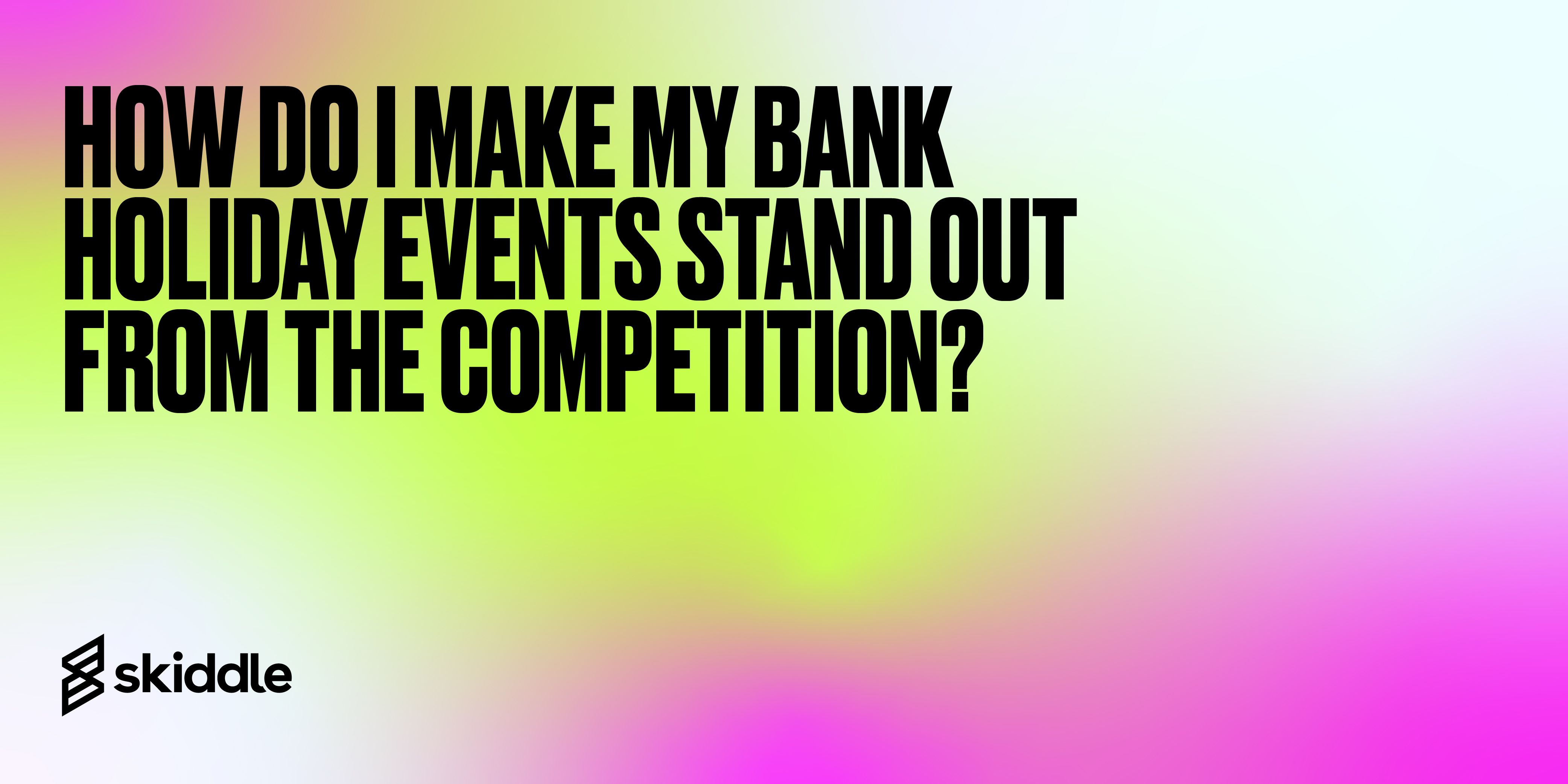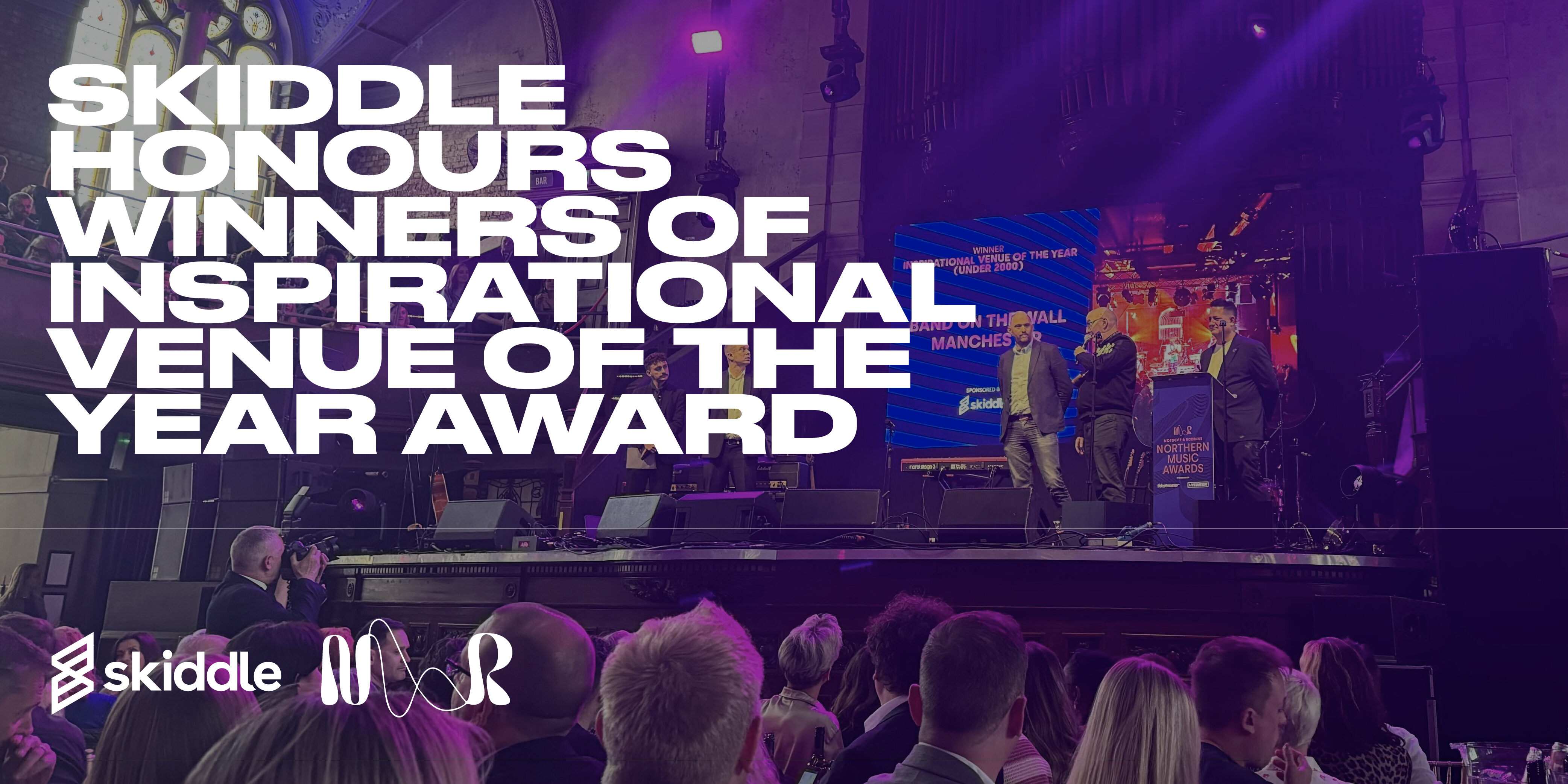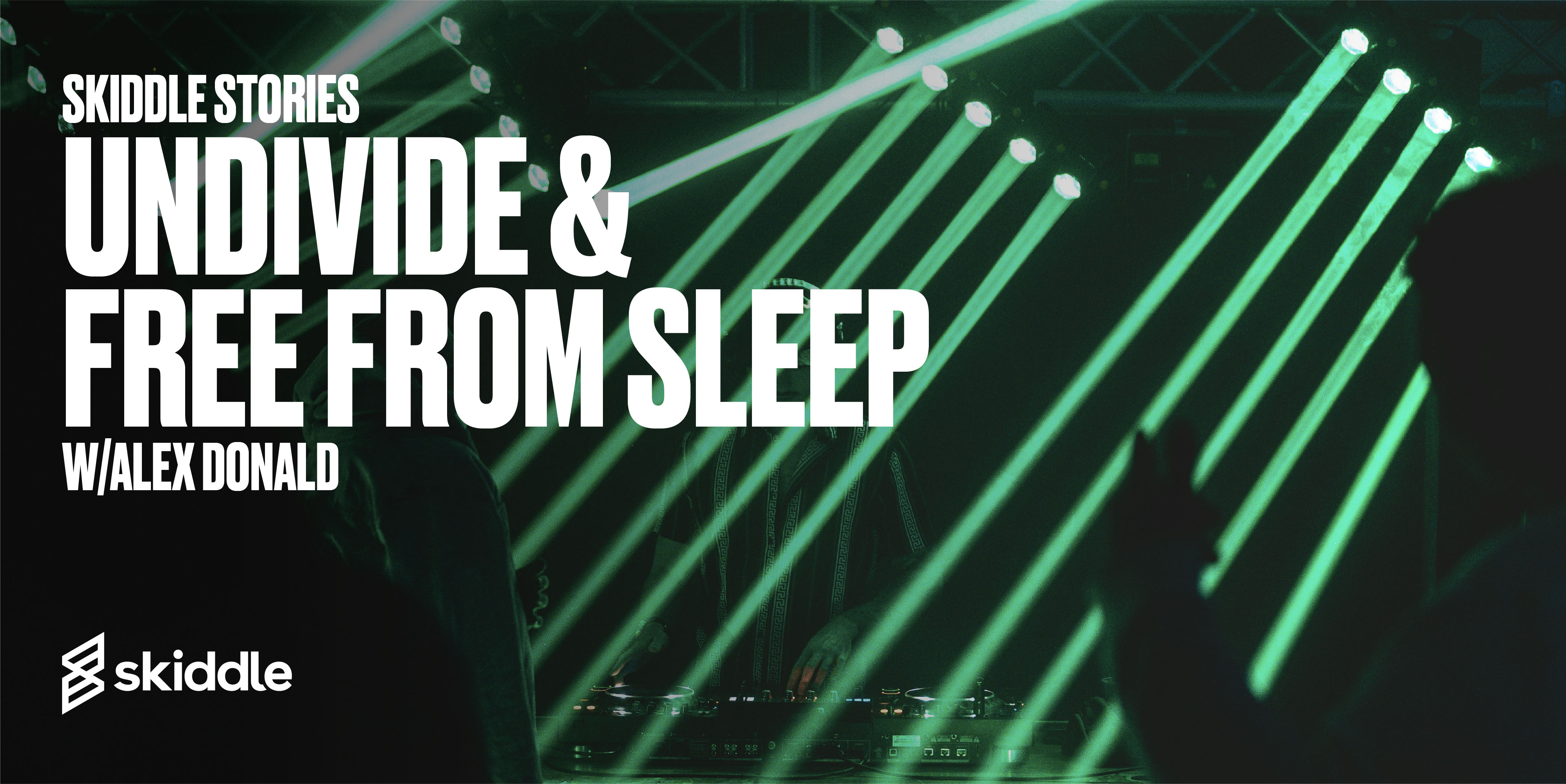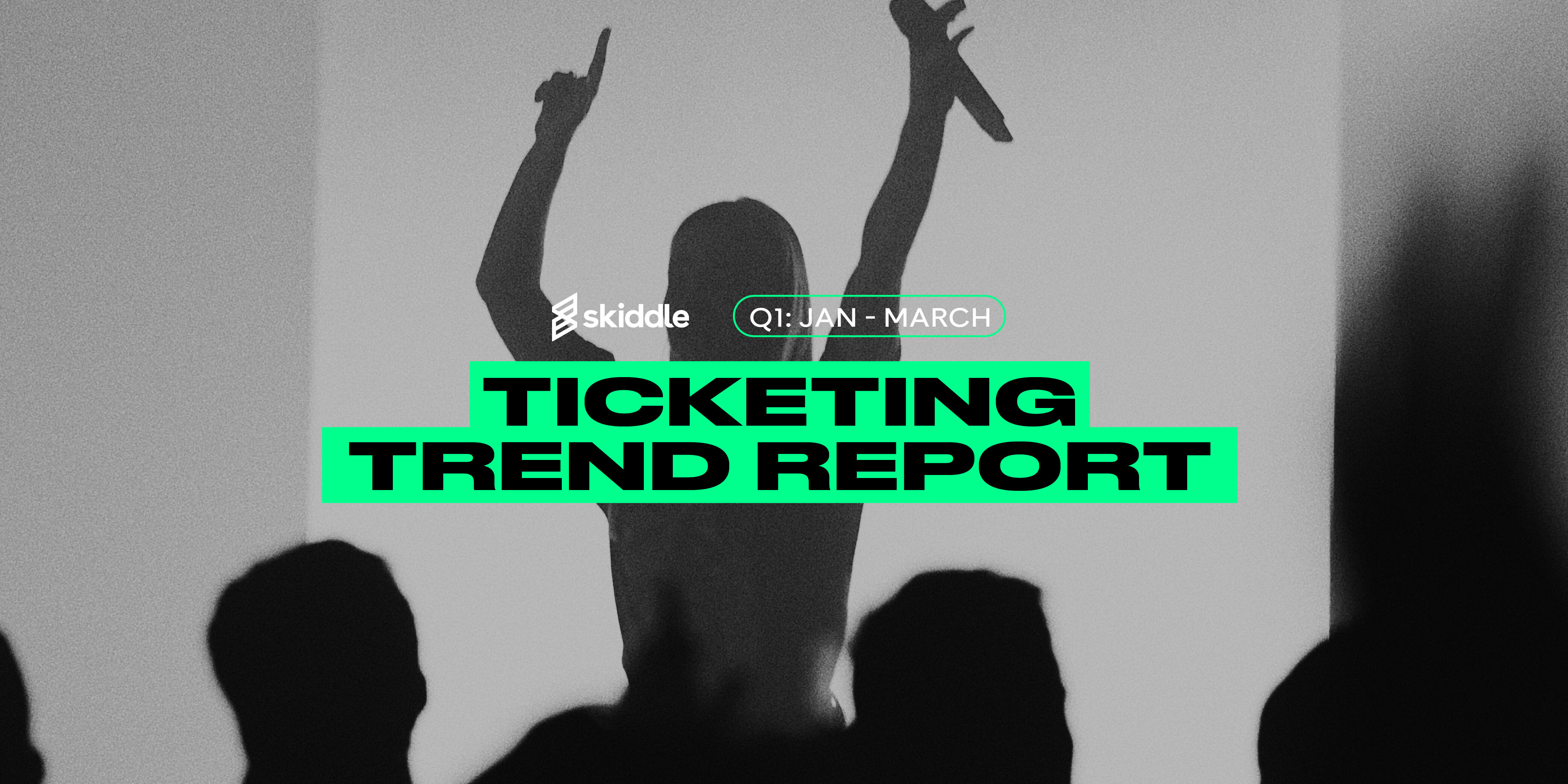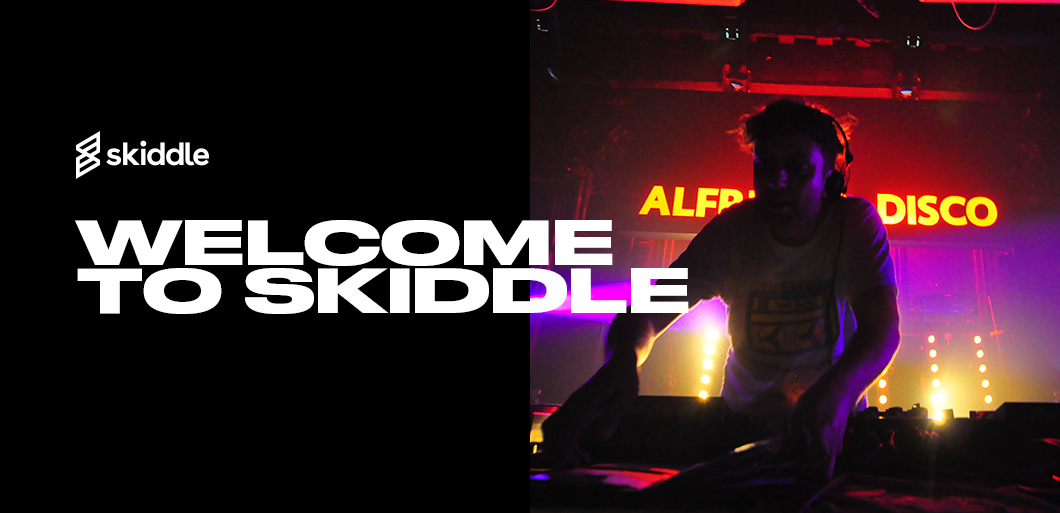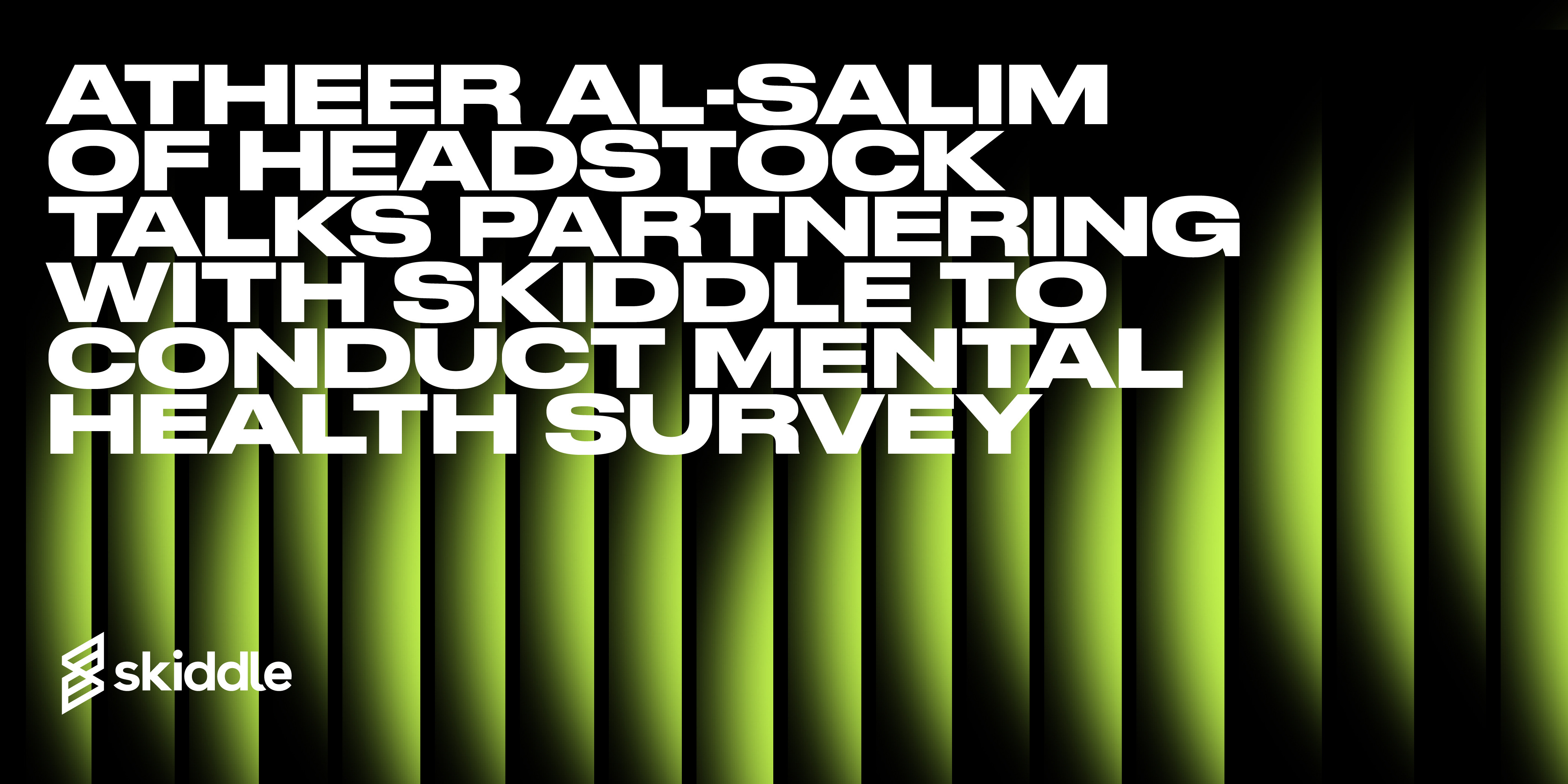- Festival
Organising a festival with Highest Point’s Jamie Scahill
-
By Ryan Moss
- 12 Jan 2024
- 1 min read
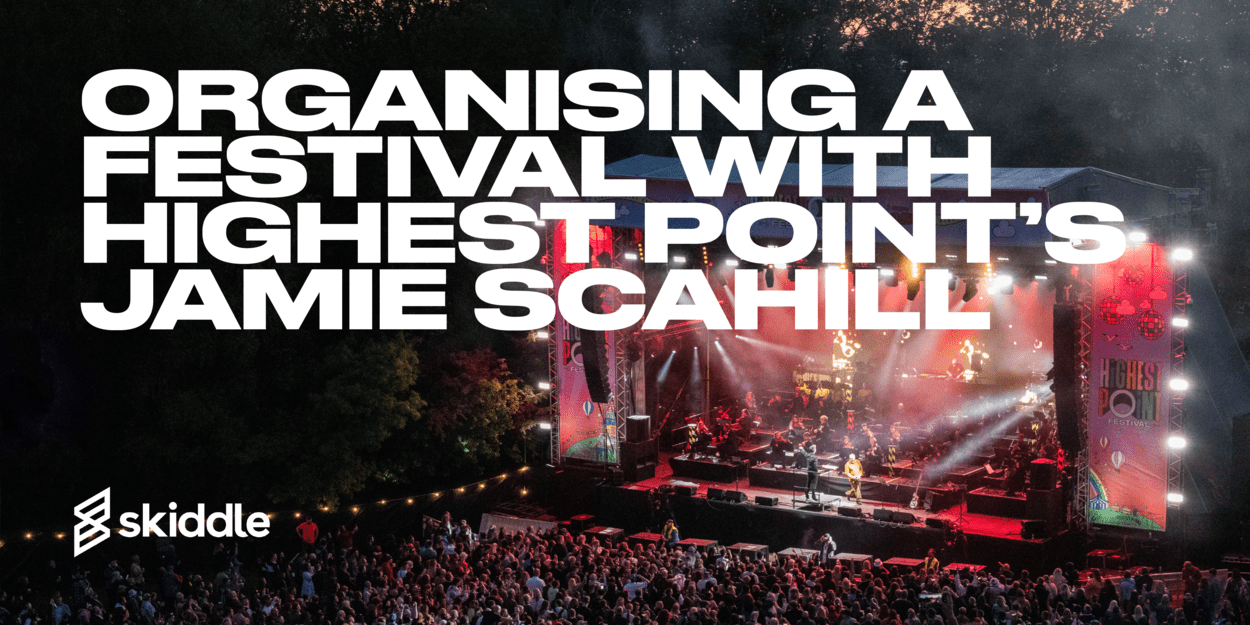
Since 2018, Highest Point Festival has become Lancaster’s premier festival, with high-profile and underground names descending on Williamson Park for a weekend of fantastic music for all ages.
Festival co-founder Jamie Scahill has a wealth of experience in the music and event industries. We were lucky enough to pick his brains, getting an insight into what goes into putting Highest Point together, how the festival came about and how becoming a festival promoter has impacted him personally.
So, if you’re thinking about dipping your toes into the festival scene in 2024, this article is for you. Keep scrolling to get the lowdown and insights from Jamie.
What do you think Highest Point has brought to Lancaster?
“They didn’t have a music festival to begin with, so I think what we’ve brought over the years is high-calibre artists that have never played in Lancaster before. The list of artists is quite extensive and it’s also something which has been lacking in Lancaster. Every year pretty much sells out, so people want that party, and we know our audience is from a twenty-mile radius. So, most people are local. It’s a festival on their calendar every year, which wasn’t there.”
How has co-founding a festival helped your career and personal life in general?
“It’s made me a lot greyer, a bit more tired… [laughs]
I think I’ve just learned a lot. The first events were the biggest events I’ve been involved in, and then you just learn on the job. You’re around people who are highly experienced, and you learn from that every single year. Now, putting on a festival for 35,000 people doesn’t scare me. We know what we’re doing. You’re always making that better, but I think you learn life skills from that. You make friends within the business that you wouldn’t do normally, and I think that helps along the way [with] confidence.”
You can do this festival every year, and [there are] ups and downs, whether it’s financial or marketing or general issues, challenges along the way. That’s business and that’s events for you. So, I think every year, without you knowing it, you’re getting more confident and you’re learning along the way.
And that gets passed through life and to other roles as well. I think it’s good to try something new [and] jump in the deep end, which we did in 2016.”
You just take it in subconsciously.
“Yeah. You’re not ticking boxes and putting it on your CV that [you’ve] done X, Y and Z, because you don’t think like that. You’re just taking it in and learning, and I think it’s that bit of confidence of how to deal with people. Even though you think you know how to do that, there’ll be situations at festivals where you’re building a festival in a park which wasn’t there a week ago and won’t be there next week.
There’s always something to deal with. It’s about how you deal with that and how the team around you deals with that. You’re learning from that and they’re probably learning from you a little bit.”
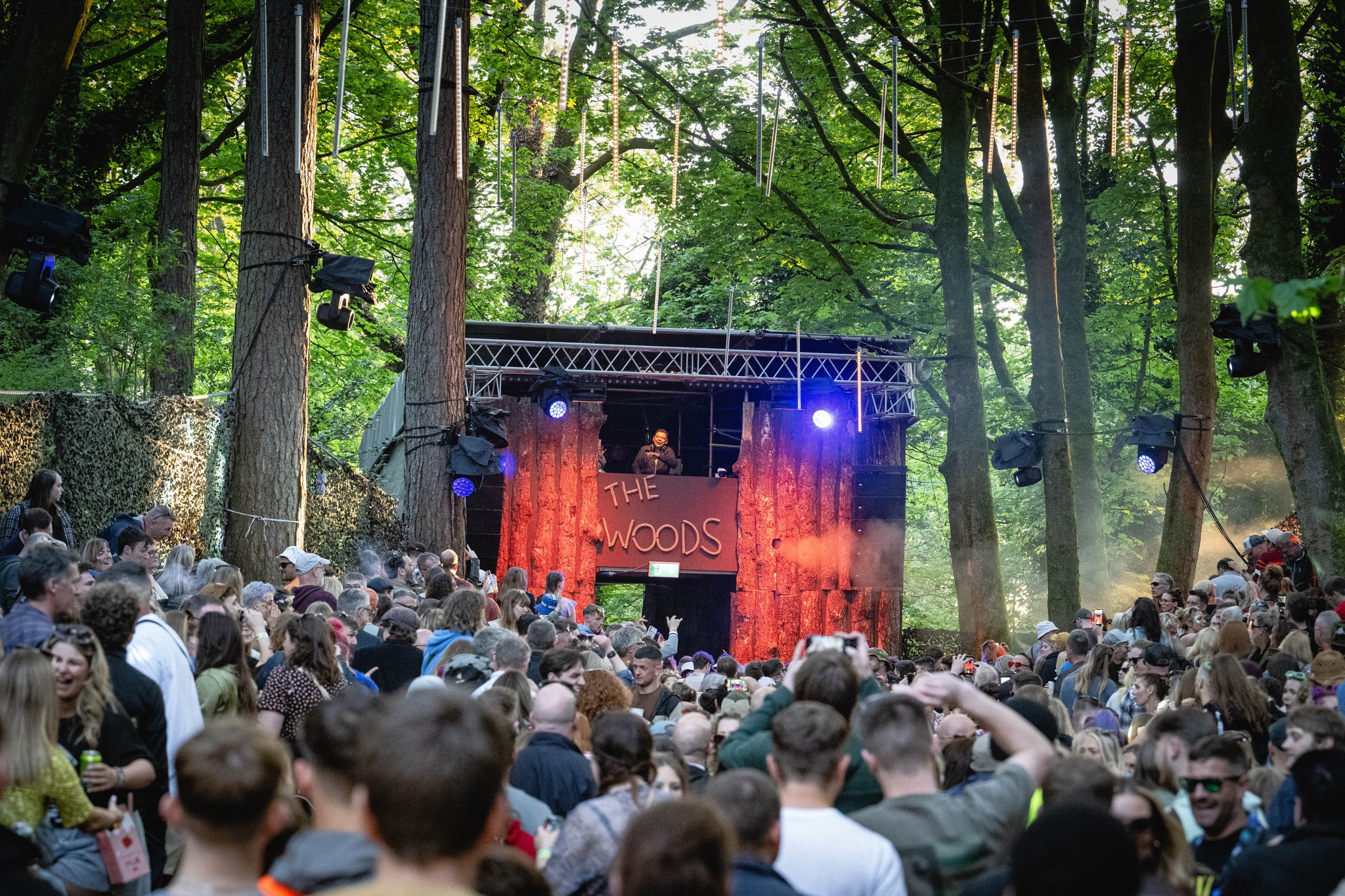
Why Williamson Park?
“At the time, we were running raves in the disused prison at A Wing at the castle, and we booked Hacienda Classical to play on the prison grounds. But at the time, they decided to put some big gates up, so we booked Hacienda Classical, and we had nowhere for it to go.
We had some friends who worked for Lancaster City Council who said, come and have a look at Williamson Park. Rich was born around Lancaster anyway so he knew Williamson Park; I didn’t really know it.
So, we went up there and said right: let’s do it up here. That went so well they said, do you wanna do a proper festival with the council? We had a year off after that when Chris [Glaba, director of the A-Wing raves] passed away, and we came back fully in 2018 with Highest Point.
It was a little happy accident, I suppose. If we’d done it at the castle, maybe it would’ve gone well, and that would’ve been it. We got thrown out [of the castle] shortly after that for putting raves on in the Queen’s castle, and it ended up in the Daily Mail. So the Duchy of Lancaster who runs it all said: don’t kill anyone and don’t end up in the Daily Mail, and we ended up in the Daily Mail.
We were quite lucky that Williamson Park existed for us and welcomed us and it’s just grown from there really.”
So what was the process like? I guess you wouldn’t have had to get permission for the first one.
“Yeah, we did [the first one] as a partnership. As we came back in 2018, there was a lot of planning around that, making it a little bit bigger, using some other areas. For the Hacienda Classical in 2016, it was just the main stage in front of the Ashton Memorial, that was it.
When we wanted to do a proper festival – which wasn’t the size it is now because we had a licence for 5,000 or 6,000 people, it’s 10,000 now – There was a bit more work to do, just working closely with the council.”
What did that work involve?
“A lot of meetings. A lot of event plans, a lot of safety plans. Again, the guys we work with now, from the events company and all their partners from the stage, it’s been pretty much the same people all the way through. So, they started small with us and it’s grown. Everybody trusts what people are saying; they trust their industry knowledge and experience, and between us all, that core team of ten or twelve people, including people from the council, all talk about what we’re doing.
It’s got a little bit easier over the years. They know what we’re doing. Event plans don’t change that much, stages and times change a little bit, but generally over the past few years this is what we do, this is how we’ve done it. So it’s got a little bit easier.
We get full support from Lancaster City Council [and] the chief exec. A lot of the councillors, MP and the Mayor come down. You see it as a real gem for the city, and they’re proud of what it’s doing for the city. The Economic Report we did in 2021, was £4.86 million that we bring to the economy of Lancaster. It’s generated from the festival and people returning, people are spending in pubs and bars over the weekend, there’s a huge benefit. As well as people having a great time, there’s a benefit for the city, visitors coming, people haven’t come to Lancaster and then they come back to it.”
Bringing external people in and serving the people who already live there.
“Yeah, and obviously, the social media side as well. If artists are posting about Ashton Memorial and the festival, then that’s going even wider. A lot of people are maybe out in London or other countries going, where’s Lancaster? And they look it up kind of thing. You know, there’s a lot of that. So there’s a lot of buzz around the city over the weekend.”
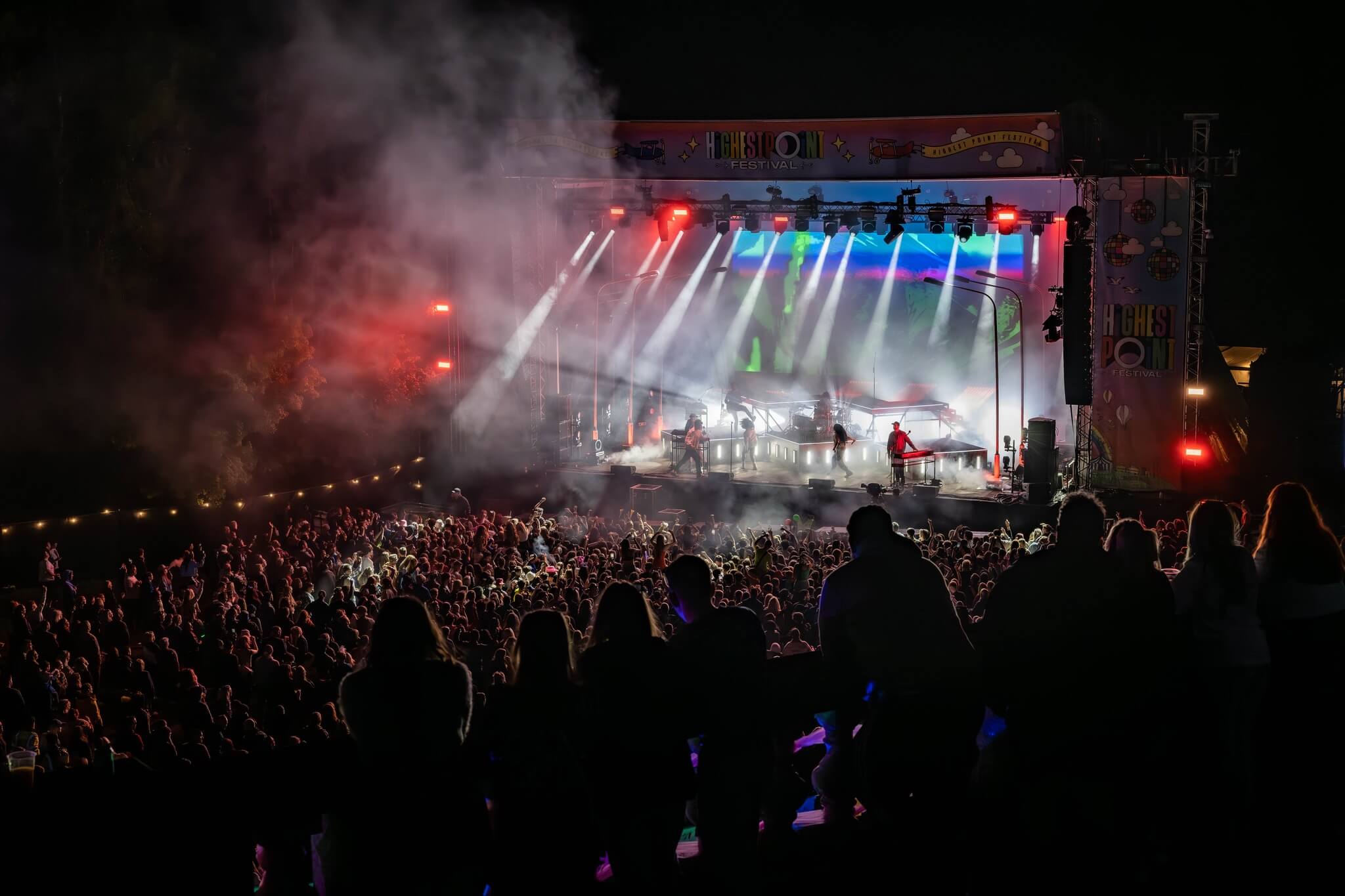
You were talking about having that relationship with the small team and then the council as well. You’ve been through those shared things and grown together.
“Yeah, everyone trusts each other. There are always discussions, sometimes heated because everybody [is] striving for the same goal as a successful festival. But it’s down to me and Rich, the buck stops with us. We bring in all these people, and it’s kind of our say, but we take advice from a lot of people about the best way of doing something.
We have a big team that works around us [and] everybody has got to be happy on that team. Whether it’s the council who owns the park, the staging people or security, everyone’s got to be happy with the festival and how it’s going to be run.
We work closely with the police and security and firemen, ESAG and everything, all the safety advisory groups. We have to give event plans like any big event does. You’ve just gotta have trust. They trust us to deliver a successful, safe event.”
Yeah, it’s building that trust. What were the challenges you faced when first putting on Highest Point?
“The hard bit was getting artists because we were doing it ourselves. When you’re dealing with agents, they don’t know you. They’ve got no trust [in] you; they don’t know what the festival is. A lot of times, they’ll say no, or they’ll charge you a premium because it’s seen as a one-off event. Now, it’s a little bit easier, but artist fees are [still] quite high.”
Do you look at anything differently? So rather than picking the biggest [artist] you could get, you look at up-and-coming artists.
“Yeah, it’s also working with local club nights. They might have relationships with some agents and go: oh, we bring this DJ in because we know it’ll sell tickets. So you might have a bit of that, where you’re working with local partners, people who run club nights, or they just know people.”
Yeah, cause you’ll go to one club night, and they’re like, oh this guy’s good, or, this girl’s good. And then it just goes on.
“Yeah, it just goes on. As you get further down the line and you do more festivals, there is that bit of loyalty. People know that you can deliver a good event, they’ll pay the ticket price, they know they’re going to have a good time, and they’re not going to get ripped off with drinks prices. It’s not like we’re coming in as outsiders to put on a festival, and then it’s a one-off festival.”
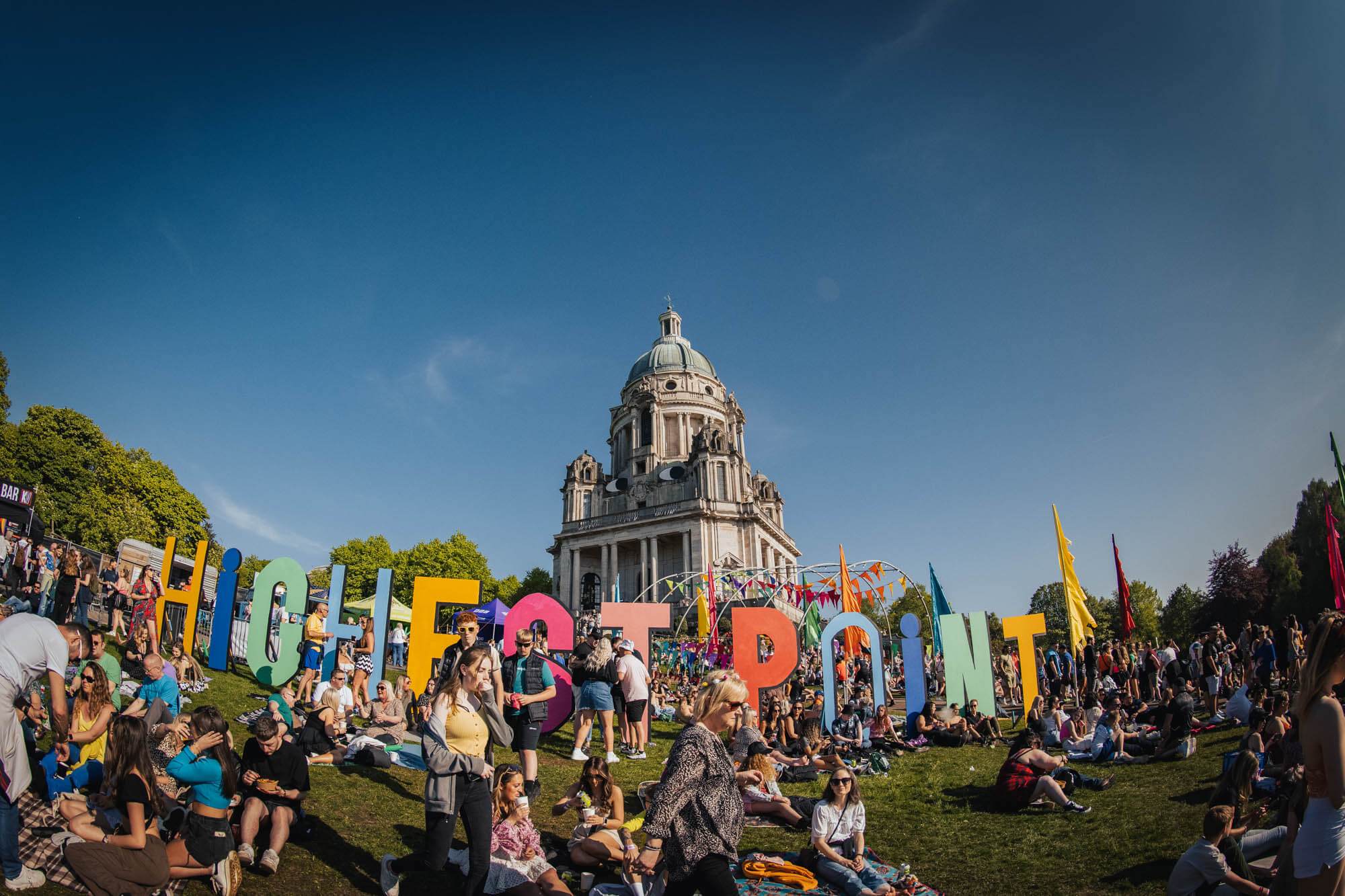
Yeah, because it’s not like a travelling circus, you’re using Williamson Park.
“Yeah. I mean, we know we’re there for years. So there’s no point in going in there charging silly prices for drinks and food and everything because next year is going to be more difficult to get people back.”
To round it all up, it’s having connections, working closely with people and trusting [people].
“Yeah. I think a lot of the time, if you’re putting on a festival somewhere, you need A: deep pockets and B: decent partners who put trust in you to deliver a safe and successful event.
Because if it’s on their land and you’re using their name to help sell a festival, it’s got to be right for them. And luckily, with the council, they did put a lot of trust in us to deliver a good event. That took a bit of time. The first few years are like: can we do this better? Can we do that better?
You make everything better as you go. Ultimately, we pay the council a higher fee, which helps the park sustain itself throughout the year. When councils are really struggling for money, us bringing that event to Williamson Park, even though there’s a bit of disruption for a couple of weeks, people come and have a good time, the park makes money from that.
We use all council refuse people, so we’re putting that money back into the local community. Rather than bringing in a company from Manchester or Preston to come and move all the rubbish, we’re using the council and we’re paying them. So there’s money going back in.
So I think finding the right partners is really important. And building that trust, it just doesn’t come easy. You’ve got to make mistakes along the way. We’ve made mistakes, they’ve made mistakes, and we’ve just got to learn from that and hopefully keep building that trust between each other and working closely.”
Got a question you need an answer to?
Give us a call on 03333010301 or ask us a question over on the Skiddle Promoter Twitter account by clicking or tapping on the button below. Alternatively, you can also find a list of our most frequently asked questions over at https://help.promotioncentre.co.uk







